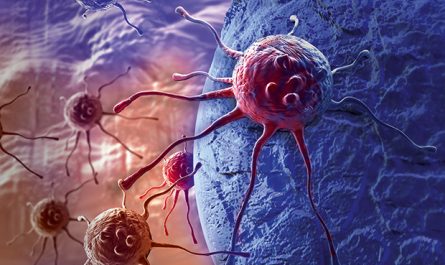Kidney cancer, also known as renal cell carcinoma, is a type of cancer that occurs in the tissues of the kidney. The kidneys are two bean-shaped organs located on each side of the spine in the back, just under the rib cage. Kidneys are part of the body’s urinary system which helps filter out waste from the blood and remove it from the body through urine.
There are a few different types of Kidney Cancer Drugs , but the most common is renal cell carcinoma which accounts for about 90% of cases. This type of cancer occurs in the lining of the tiny filtering units, called nephrons, located within the kidney. When cancer starts in the nephrons it is called renal cell carcinoma.
Kidney cancer is caused by the uncontrolled growth of abnormal cells in one or both kidneys. The exact causes of kidney cancer are still unknown. However, risk factors that may contribute to the development of kidney cancer include smoking, obesity, high blood pressure, family history, and genetic factors.
Conventional and Targeted Therapy Options
Traditionally, treatment options for kidney cancer have depended on the stage of the disease. Early stage kidney cancer is often treated with surgery to remove the cancerous kidney which can potentially cure the disease. For later stage or metastatic kidney cancer, systemic treatments are necessary.
Chemotherapy was one of the earliest conventional therapies tried but has been found to provide only modest benefits in kidney cancer. Immunotherapy was also utilized with cytokines intended to stimulate the immune system, but this also had limited anti-tumor activity.
Understanding the molecular biology of kidney cancer led to the development of targeted therapies that specifically interfere with pathways driving cancer cell growth and survival. Multiple targeted drugs are now approved and frequently used for kidney cancer treatment.
Some of the approved targeted therapies for kidney cancer include sunitinib (Sutent), pazopanib (Votrient), axitinib (Inlyta), cabozantinib (Cabometyx), lenvatinib (Lenvima), everolimus (Afinitor), temsirolimus (Torisel), and nivolumab (Opdivo) plus cabozantinib. These drugs are approved for both first-line and subsequent lines of therapy.
They have significant advantages over chemotherapy by producing higher response rates and longer progression-free survival overall. This led to widespread adoption of targeted therapies as the standard of care for advanced kidney cancer treatment.
Developing Newer Targeted Agents
While remarkable progress has been made, kidney cancer still remains incurable for the majority of patients. Resistance inevitably develops requiring further lines of therapy. Therefore, ongoing research aims to develop even more effective targeted agents.
One area of intense focus is enhancing anti-angiogenic therapy. Vascular endothelial growth factor receptor (VEGFR) inhibitors like sunitinib and pazopanib have transformed outcomes but newer agents combining VEGFR inhibition with other pathways are in development. Cabozantinib is an example of a drug with dual VEGFR and MET inhibition approved based on superior outcomes.
Other multi-targeted tyrosine kinase inhibitors in late-stage trials include lenvatinib plus everolimus and savolitinib. Emerging data also suggests benefit from continuing VEGFR inhibition beyond progression on an initial VEGFR TKI.
Immunotherapy has started to make headway in kidney cancer as well. Nivolumab demonstrated improved outcomes when combined with ipilimumab and became the first approved immunotherapy combination. Ongoing studies are evaluating its potential in earlier lines and in combination with other agents.
Additional immunotherapy approaches under investigation include PD-L1 inhibitors, GM-CSF vaccines, and novel immune checkpoint inhibitors targeting complementary pathways beyond CTLA-4 and PD-1. Combining immunotherapy with targeted therapy is also a promising avenue researchers are actively exploring.
At the same time, efforts continue to identify predictive biomarkers to select the optimal treatment for each individual patient. Comprehensive genomic and immune profiling is helping reveal new targets and rational drug combinations. Investigational therapies directed against these novel targets offer hope that kidney cancer may become a chronic, manageable disease in the future for many more patients.
Outlook and Conclusion
Over the past decade, major therapeutic advances have been achieved in kidney cancer treatment driven mainly by development of targeted therapies. Approval of multiple new agents has provided patients with significantly improved survival outcomes compared to older conventional chemotherapy options.
However, resistance still emerges and new lines of therapy will continue to be needed as the disease inevitably progresses. Active areas of research aim to enhance angiogenic and immunotherapy combinations, discover novel targets, and develop personalized treatment approaches through biomarker strategies.
While kidney cancer remains incurable for many, the continued progress indicates a bright outlook for even better treatments. In the long run, through coordinated efforts between researchers, physicians, and patients, the goal of eventually turning advanced kidney cancer into a chronic, manageable disease may become a reality for the majority of individuals diagnosed with this disease.
*Note:
1.Source: Coherent Market Insights, Public sources, Desk research
2.We have leveraged AI tools to mine information and compile it



